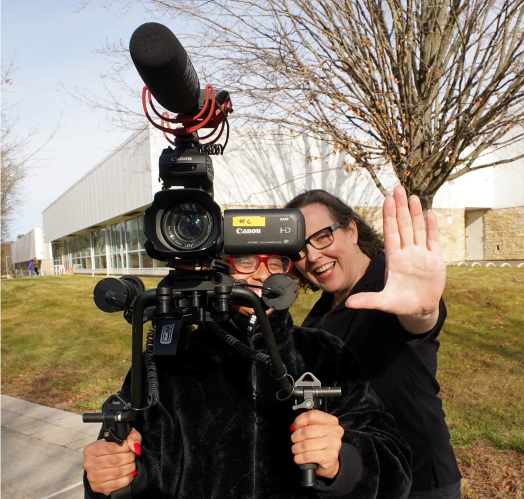The Microcredential in Fundamentals of Non-Fiction Video Production is designed for students to develop basic video production and post-production skills for documentary, reporting or advocacy. These skills include researching, storyboarding and scriptwriting, as well as basic cinematography, sound recording and non-linear editing. Students will also gain familiarity with the history, ethics, elements, and language of non-fiction media. This Microcredential consists of two sequential courses: AS3247, Introduction to Video and TV, followed by AS4852, Documentary Production. Students successfully completing the requirements of the Microcredential will be able to research, plan, write, film and edit short non-fiction videos.
Requirements
Students are required to take 8 credits by completing two video courses with a grade of B or higher at Old Westbury. (Note: Both of the courses in the Microcredential have pre-requisites that are not part of the Microcredential.)
-
AS3247 Introduction to Video and TV 4 cr
-
AS4852 Advanced Video: Documentary 4 cr
Skills and Competencies
Students who complete these courses at the stipulate level will:
-
Demonstrate the ability to use portable video cameras, tripods, microphones, portable lighting equipment, and non-linear editing systems to create original video projects.
-
Use TV studio equipment, including TV cameras, audio boards, lighting boards/grids, switchers, and field production equipment such as HD cameras and microphones to produce broadcast-quality videos.
-
Employ responsible journalism practices to create television content that is socially engaged and reflects the diversity of the SUNY Old Westbury community.
-
Pre-produce video projects and television segments using the methods of brainstorming, researching, reaching out to potential interview subjects and pre-interviewing.
-
Write engaging television scripts and interview questions.
-
Tell a story using words and images.
-
Understand the history, ethics, elements, and language of documentary media through critical readings, screenings, and discussions.
-
Demonstrate a mastery of camera and editing techniques through production of original video work.
-
Demonstrate the ability to critique and edit work for improved structure, technique, clarity and artistry.
-
Produce polished short non-fiction videos and television segments ready for screening.
For More Information about Old Westbury’s Microcredentials
Visit the Microcredentials homepage.


